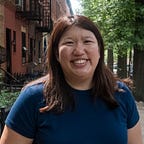Remote Year Month Eight: Discovering the Modern Transnational Asia + Living Out My Fantasy Expat Life
I remember on a call in Japan, I said I’d started to lose touch with reality. The brutal time difference got to me. It would be 11pm when New York got up at 9am. I didn’t get enough sunlight. I dove further into madness, going on a whirlwind tour of Seoul, Hong Kong, Taiwan, and Singapore during my official month in Kuala Lumpur. It’d been months since I’d been in the US and in an office. Spending time that month in Hong Kong, Taiwan, Korea, and to a place as multicultural, modern, yet feeling ancient and traditional was a homecoming for a lost daughter of the diaspora , and peek at what being a modern Asian will be in the decades ahead. People with a mastery of the past, present, and future. For me, it’s new ways to look at what is being transnationally Asian , versus the superficiality and respectability politics of being solely Asian American.
It took me a long time to piece together what I learned from that month, and this was the draft that didn’t have a narrative. This was the most difficult post to edit compared the previous months and in Latin America.
I think what I learned is what an idealized life could be for me, and my potential place in a modern Asia. I think we’re at such a moment of the power shift to the East, perhaps I picked the wrong side of the Ocean to make my bet on, but I had that month in Malaysia to live out a fantasy expat life in a nice apartment with a view of the Petronas Towers.
One of my biggest observations of Asia versus ten years ago when I’d spent extended time is rediscovery of culture and pride. It’s not just about replicating the West anymore, and the COVID crisis probably is destroying any last vestiges of inferiority/superiority complexes that were so prominent in my youth .
The rise of a Modern Asia is no longer just about economy, but culture and rise of civil society. This has been the story anchored by China’s rise as a superpower, but the modernization of Asia is a far richer story. It sounds self-orientalizing to say it and really something an Asian American might say, but I say this as someone fluent in an Asian language and able to speak several dialects. I have to say, I reveled in how deeply I could move in KL whereas it was much more difficult for the traveling companions. KL wasn’t like Vietnam, Japan, or Thailand in its welcoming of tourists. There’s no timidity when everyone speaks English. But I could easily become more of an insider depending which Chinese dialect I decided to speak, even though it’s obvious I’m not Malaysian. The Malaysian Chinese welcomed me especially regardless.
KL showed me that multiculturalism, preserving identity, and evolving it are possible, a model for modern Asians in adapting our heritage. From the hipster renditions of Kopitiams to the art, I admire the Malaysian Chinese and the beauty of a multilingual multicultural society for carving out spaces that integrate the traditional and modern without contradiction.
On a side note, I think Andrew Yang is so out-of-touch for his respectability politics . I think as a diaspora people, we’ll always be looked at with suspicion on both sides of the Pacific and we have to tread carefully , but in whatever hands you’re dealt with in life, you can play them a good way or a bad way. Losing your heritage and connecting Asian to be as American as possible to gain the approval of a dying empire is not a winning strategy and dooming yourself to a life full of microaggressions in corporate America, or worse, COVID hate in Trump’s America .
In my mind, even as a single 35 year female New Yorker, I still have some vestiges of the ideals of Republican China, a place between ideology and dreams, and restoring the light . The month in KL is where I felt like I got to live an ideal life in a borrowed cultural sphere, it was great to be a guest in KL. As nice it was to be asked if I was a returning Malaysian, it was nice to in a place so multicultural where I could speak the brambling mixes of Mandarin/Cantonese/Hokkein without the anxieties I’d feel in China/Taiwan/Hong Kong in the contentious times we live in now . It felt like a great place to be an Asian outsider, a wannabe expat for a month. I joked to my friends on RY if I didn’t have a good job to go back to in NY, I’d have just stayed.
There’s no neat bow to end this month, just ramblings and learning about what it is to be modern Asian. The question I ask myself is what is my generation’s place and contribution?
Originally published at http://bessieeats.com on August 6, 2020. More pics here
